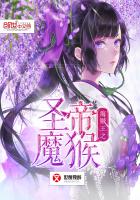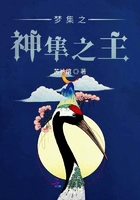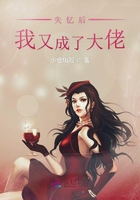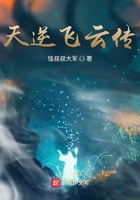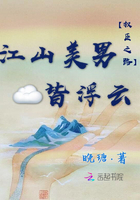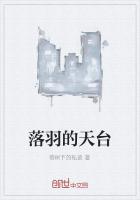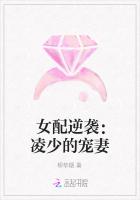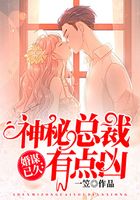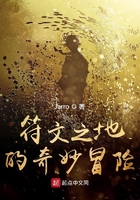他读完这部书的那一部分,就把空中小姐叫过来,把那一部分送回到他的秘书那里,他的秘书坐的是经济舱。每一次,这部伟大的俄国小说的一部分送过来,撕毁了,但还可以看,送回到飞机的后舱,都会引起极大的兴趣、指责,肯定还有好奇心。总之,这一聪明的阅读《安娜·卡列尼娜》的方式给人留下了深刻的印象,那里的每一个人可能都永远不会忘记。?
When he reached the end of a section of the book, he called the airhostess, and sent it back to his secretary, travelling in the cheaper seats. This caused much interest, condemnation, certainly curiosity, every time a section of the great Russian novel arrived, mutilated, but readable, in the back part of the plane. Altogether, this clever way of reading Anna Karenina makes an impression, and probably no one there would forget it.
与此同时,在那个印度人开的小店里,那个年轻的女子手扶着柜台,她的小孩子们拽着她的裙裾。她穿着牛仔裤,因为她是个现代女性,然而,在牛仔裤外面,她穿着厚厚的毛料裙子,这是她那里的人穿的传统服装。她的孩子们轻而易举就可以拽住裙子,拽住裙子厚厚的褶子。?
Meanwhile down in the Indian store, the young woman is holding onto the counter, her little children clinging to her skirts. She wears jeans, since she is a modern woman, but over them she had put on the heavy woollen skirt, part of traditional garb of her people: her children can easily cling onto it, the thick folds.
她向那个印度人报以感激的一瞥,她知道,他喜欢她,为她感到惋惜,她出了小店,走进尘土飞扬的风中。?
She sent a thankful look at the Indian, whom she knew liked her and was sorry for her, and she stepped out into the blowing clouds.
孩子们走过去,哭闹个不停,不管怎么说,她们的嗓子里灌满了沙尘啊。?
The children had gone past crying, and their throats were full of dust anyway.
这很难,啊,是的,是很难啊,这一步又一步地走着,穿过那沙土,在脚下那松软的沙土堆里深一脚浅一脚地走着。难啊,难啊——但是她对艰难已经习以为常了,不是吗?她的脑子里想的还是她刚刚看的那个故事。她在想:“她和我一模一样,头上包着白头纱,也在照看孩子们。我会是她的,那个俄罗斯女孩儿。那里的那个男人,他爱她,会求她嫁给他。(除了那一段,其他部分她还没有看完)是的,一个男人将会为我而来,带我离开所有这一切,带着我和孩子们,是的,他会爱我,呵护我。”?
This was hard, oh yes, it was hard, this stepping, one foot after another, through the dust that lay in soft deceiving mounds under her feet. Hard, hard—but she was used to hardship, was she not? Her mind was on the story she had been reading. She was thinking, “She is just like me, in her white headscarf, and she is looking after children, too. I could be her, that Russian girl. And the man there, he loves her and will ask her to marry him. (She had not finished more than that one paragraph) Yes, and a man will come for me, and take me away from all this, take me and the children, yes, he will love me and look after me.”
她继续赶路。那罐水放在她肩膀上,很重。她继续走路。孩子们听得见水在罐子里溅出来的声音,走到半路,她停下来,把水罐放了下来。她的孩子们在呜呜地哭,在摸水罐。她想她不能打开水罐,因为灰尘会吹进来的。只有到了家,她才能打开水罐。?
She steps on. The can of water is heavy on her shoulders. On she goes. The children can hear the water slop in the can. Half way she stops, sets down the can. Her children are whimpering and touching the can. She thinks that she cannot open it, because dust would blow in. There is no way she can open the can until she gets home.
“等一等,”她对她的孩子们讲,“等一等吧。”?
“Wait.” she tells her children, “Wait.”
她不得不振作精神,继续赶路。?
She has to pull herself together and go on.
她想:我老师说,那里有一个图书馆,比超市还大,是一座很大的大楼,里面满当当的全是书。这年轻的女子一边走,一边微笑,风沙吹打着她的面庞。我聪明,她想。老师说我很聪明。是全学校最聪明的——她说我是最聪明的。我的孩子们像我,也会很聪明。我会带她们去图书馆,那个满是书的地方,她们将会上学,将来当老师——我老师对我说过,我是能当老师的。她们会离开这里,到很远的地方,挣钱。她们会住在那个大图书馆的附近,过上很好的生活。?
She thinks. My teacher said there was a library there, bigger than the supermarket, a big building and it is full of books. The young woman is smiling as she moves on, the dust blowing in her face. I am clever, she thinks. Teacher said I am clever. The cleverest in the school—she said I was. My children will be clever, like me. I will take them to the library, the place full of books, and they will go to school, and they will be teachers—my teacher told me I could be a teacher. They will be far from here, earning money. They will live near the big library and live a good life.
您可能会问,那一部分俄国小说最后在印度人小店的柜台上结局如何??
You may ask how that piece of the Russian novel ever ended up on that counter in the Indian store?
那将会是一段美好的故事。或许会有人讲这个故事的。?
It would make a pretty story. Perhaps someone will tell it.






